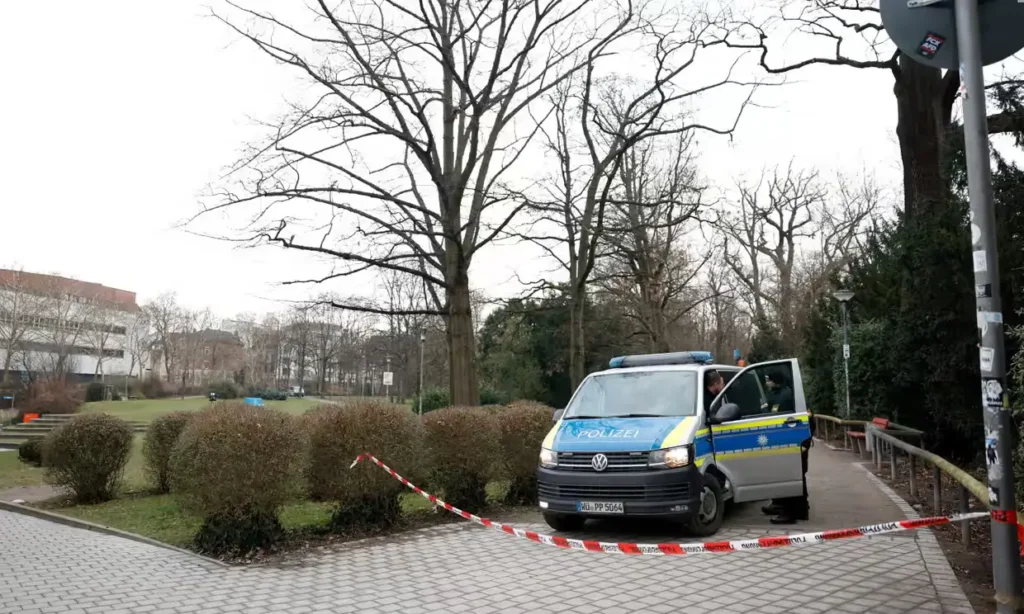A knife attack in Schöntal Park, Aschaffenburg, left a two-year-old boy and a 42-year-old man dead on Friday. Police arrested a 28-year-old Afghan Asylum seeker at the scene while two other victims, including a child, remain hospitalized with severe injuries.
Officials revealed the suspect, known for past violent behaviour, faced deportation after his asylum claim was rejected. Bavaria’s interior minister, Joachim Herrmann, confirmed authorities had detained him three times for violence but released him after psychiatric treatment.
Bavarian state premier Markus Söder called the incident despicable and noted the deceased man acted courageously to help the victims. Authorities ruled out radical Islam as the suspect’s motive after searching his asylum seeker accommodation.
Police emphasized no public danger remains and stated their investigation into the German park stabbing attack is ongoing. Chancellor Olaf Scholz, addressing the incident from France, condemned the unbelievable act of terror and criticized existing asylum protocols.
Scholz further expressed frustration over recurring violence and urged policymakers to ensure more substantial immigration. This attack occurred amidst mounting political tension before Germany’s federal election on February 23rd.
Recent crimes, including December’s Christmas car attack and August’s Solingen stabbings, intensified public scrutiny of immigration policies. The Far-right AfD, riding a wave of anti-immigration sentiment, surged to second in national polls.
Olaf Scholz’s centre-left Social Democratic Party (SDP) faces declining support, trailing the conservative Christian Democratic Union (CDU). Germany tightened border controls and knife regulations after recent violence but remains divided over asylum laws.
Söder called for reflection, mourning the loss of innocent lives. As election day nears, the German park stabbing attack ignites heated debates about Germany’s immigration and security policies nationwide.








